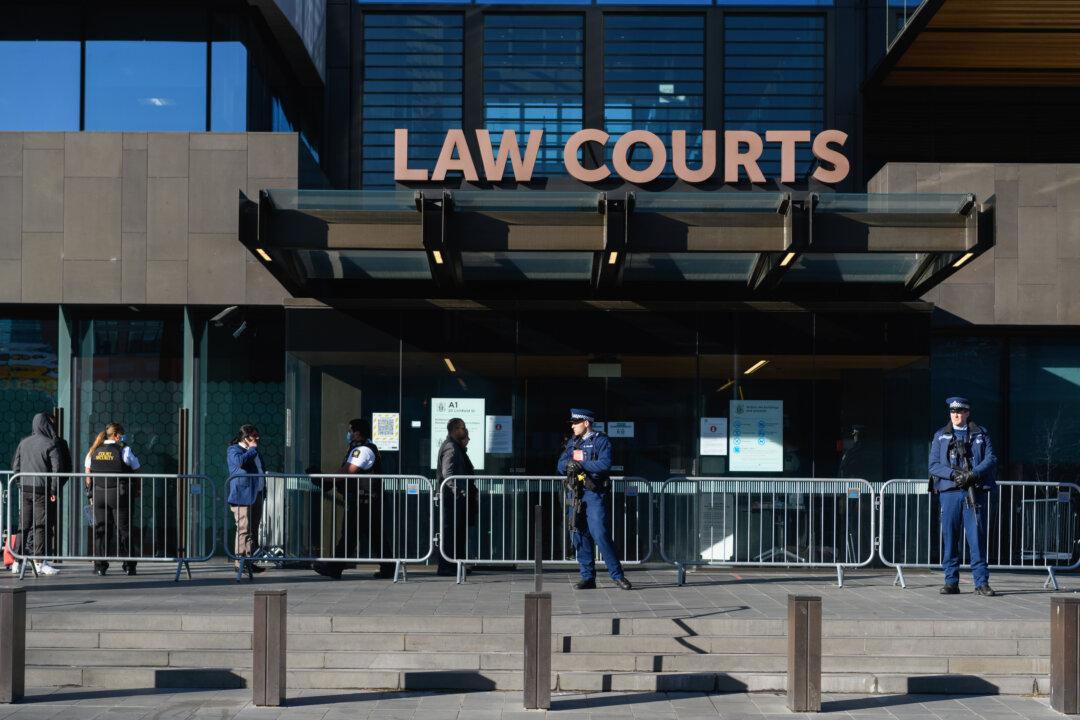The conviction of a television host who became a prominent protester against COVID mandates and lockdowns has had her assault conviction overturned by New Zealand’s High Court.
Liz Gunn—real name Elizabeth Jane Cooney—was found guilty in May last year of assaulting an airport worker following an incident at Auckland Airport.





